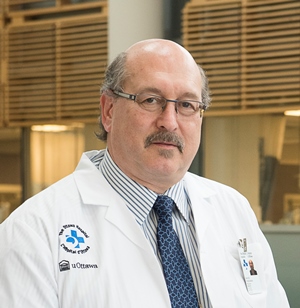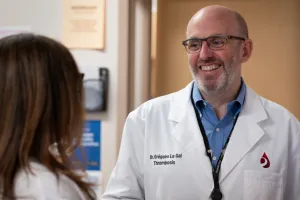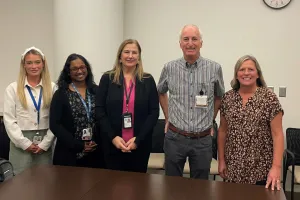Common supplement being tested as potential treatment for progressive MS
 Lipoic acid (LA), a natural antioxidant, has shown promising results in a small pilot trial in helping people with multiple sclerosis (MS) walk faster and preventing brain atrophy.
Lipoic acid (LA), a natural antioxidant, has shown promising results in a small pilot trial in helping people with multiple sclerosis (MS) walk faster and preventing brain atrophy.
In early proof of concept studies, researchers at The Portland VA Medical Center (Portland, Oregon) used magnetic resonance imaging (MRI) to discover LA had a definite beneficial effect on reducing brain volume loss and appeared to help maintain walking speed for people living with secondary progressive MS. Fifty-one individuals were administered either 1,200 mg of LA orally or placebo (mock drug) daily for two years. Participants who received LA had a 68 per cent decrease in the amount of brain volume loss compared to individuals on placebo.
The MS Society of Canada is partnering with the National MS Society (U.S.) to fund a larger clinical trial aimed at determining the efficacy of LA as a treatment for both primary and secondary progressive MS. Led by Dr. Rebecca Spain, the trial will enroll 118 participants with progressive MS across North America.
"Lipoic acid is a powerful antioxidant that exists naturally in our bodies and is available as an oral supplement," says Dr. Spain, researcher and clinician at the Portland VA Medical Center and Oregon Health & Science University. "The discovery that it may treat progressive MS can be potentially life-changing, especially given that few options currently exist for treating progressive MS."
Progressive MS can cause significant disabilities, impacts quality of life and requires extensive health resources to manage. Presently, there is only one disease-modifying therapy that is conditionally approved for treating adults with early primary-progressive MS. Another agent is approved for treating secondary-progressive disease in the U.S. and is awaiting approval in Canada. Effective treatment for progressive MS would include slowing or stopping progression and lead to reduced disability, sustained independence and improved quality of life.
"It has been challenging to establish the benefit of therapies for progressive MS as evidenced by the general lack of treatments we have to manage it," says Dr. Mark Freedman, Director of MS Research at The Ottawa Hospital, professor at the University of Ottawa and principal investigator for the only Canadian trial site. "We're very encouraged by the early results with lipoic acid, but we need this larger clinical trial to be more confident that it works. If it does, it would be very exciting as it would give people with progressive MS a simple, safe and cost-effective way to manage their complex disease."
Dr. Freedman also notes that it is important for people with MS to consult a medical professional before taking any new but unapproved medications or supplements that might be available.
The trial will randomly assign participants to either LA or a placebo for two years, during which they will be monitored for safety, and evaluated for changes in walking, neurological examination and brain MRI. Researchers will analyze this data to determine if LA is an effective treatment for progressive MS. Results from the study are expected in late 2022.
"We're excited about the possibilities raised by the potential of using lipoic acid as a treatment for progressive MS, which can be particularly challenging to manage," said Dr. Pam Valentine, president and CEO, MS Society of Canada. "The use of a natural supplement like lipoic acid as a treatment option could have far-reaching implications for people living with progressive MS. The MS Society of Canada is proud to be a collaborative funding partner in this important study."
Recruitment for the study has begun. For more information, visit our MS Update. Information on the U.S. sites can be found on the National MS Society webpage.
For media inquiries contact:
Jennifer Asselin
MS Society of Canada
1-800-268-7582 ext. 3144
jennifer.asselin@mssociety.ca
Jennifer Ganton
Ottawa Hospital Research Institute
613-798-5555 ext. 73325
www.ohri.ca/newsroom
Learn more about:
The Ottawa Hospital is a leading academic health, research and learning hospital proudly affiliated with the University of Ottawa and supported by The Ottawa Hospital Foundation.


